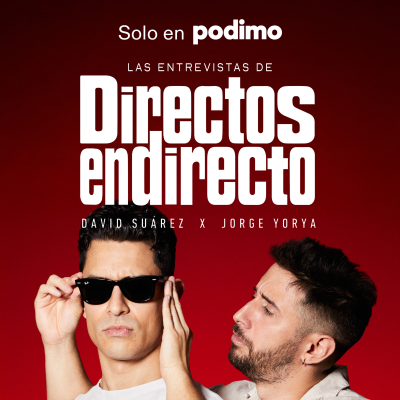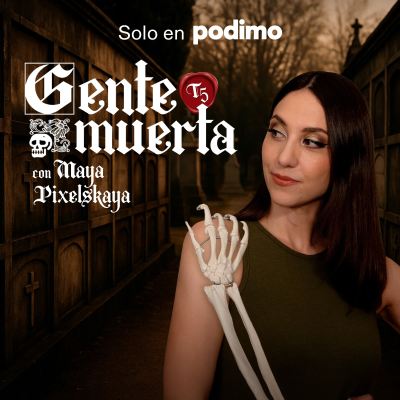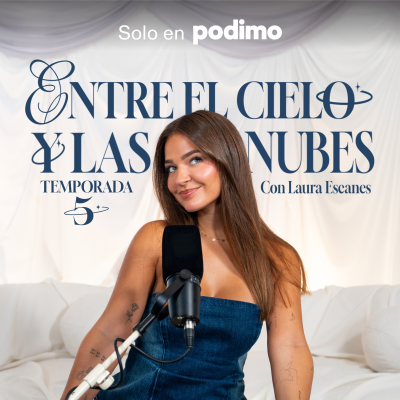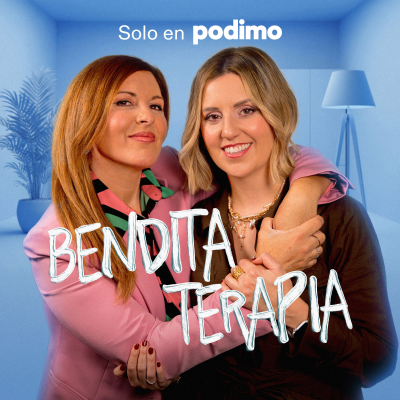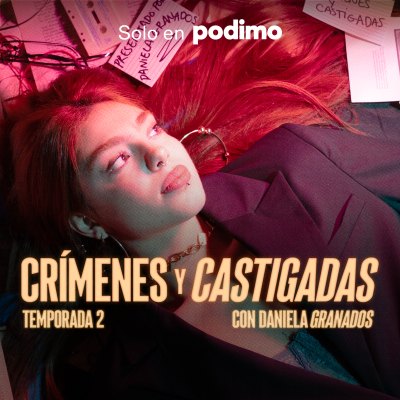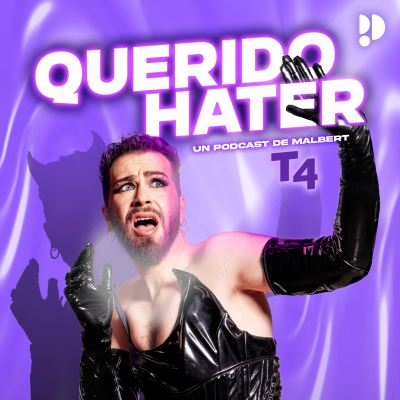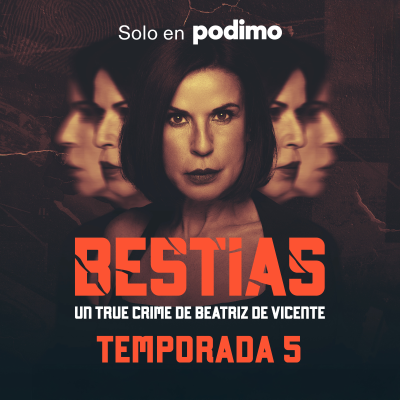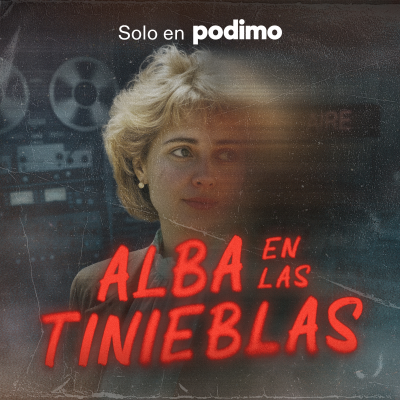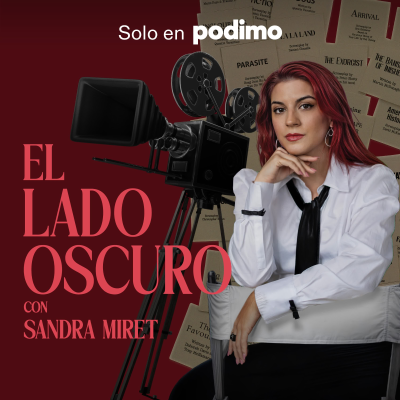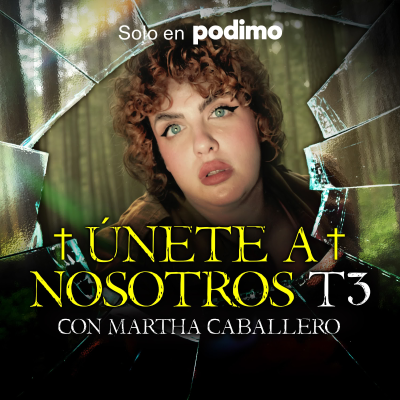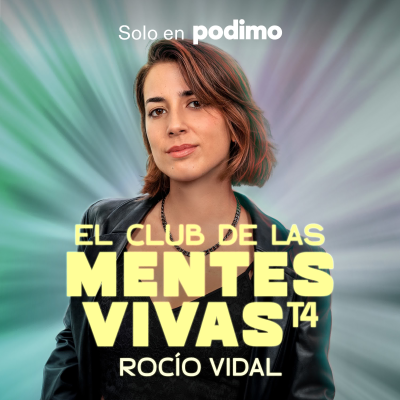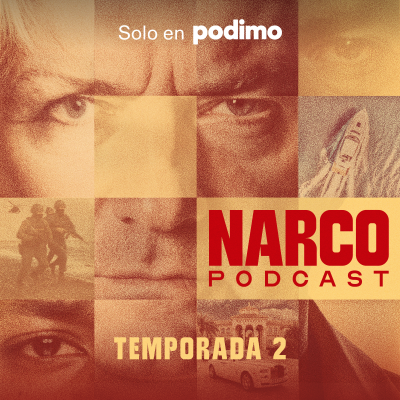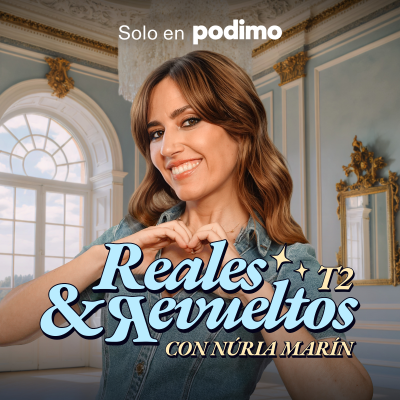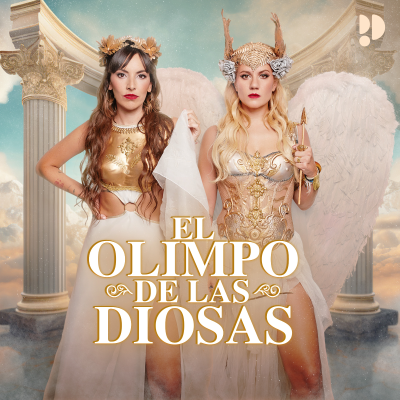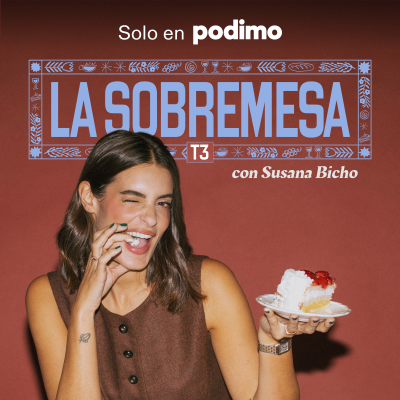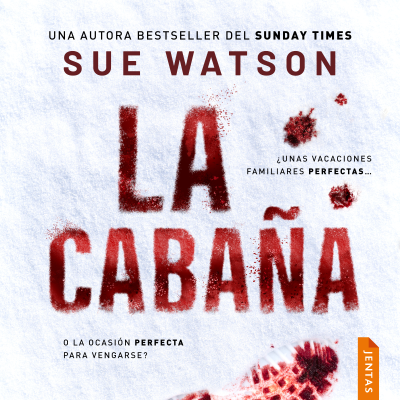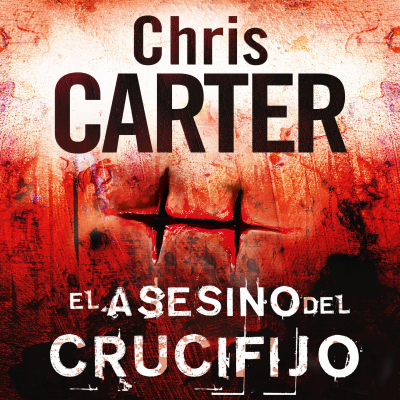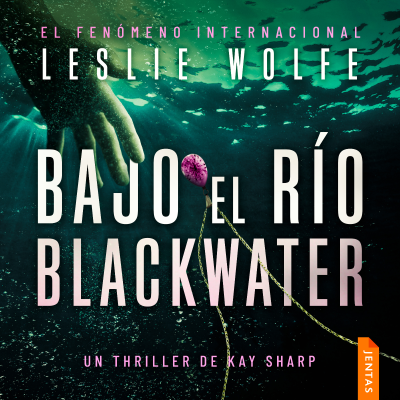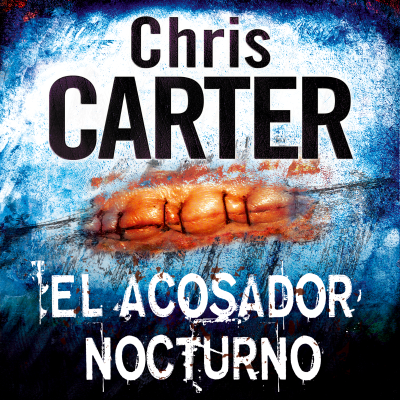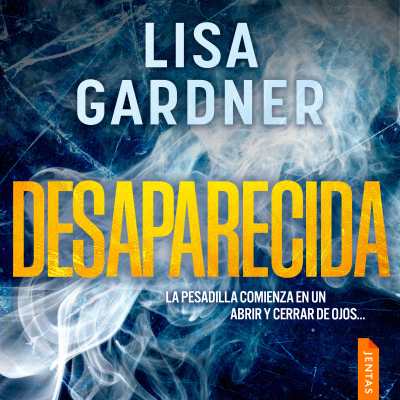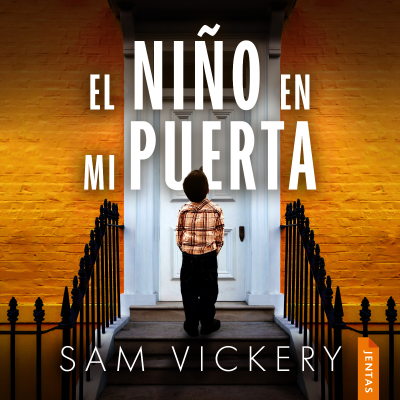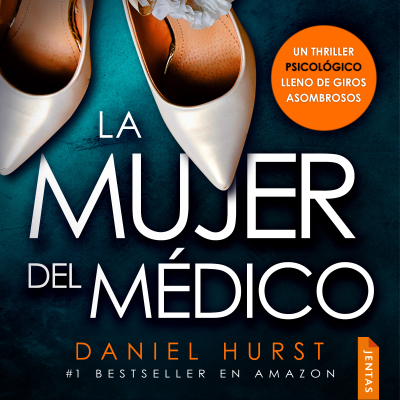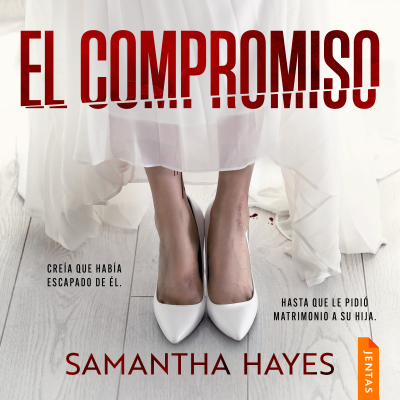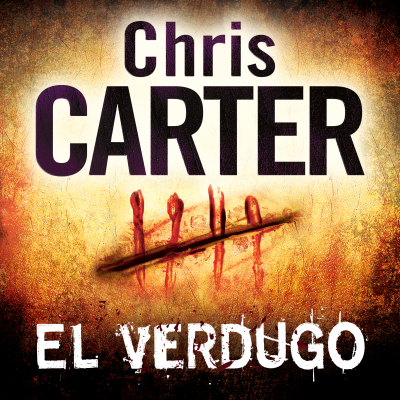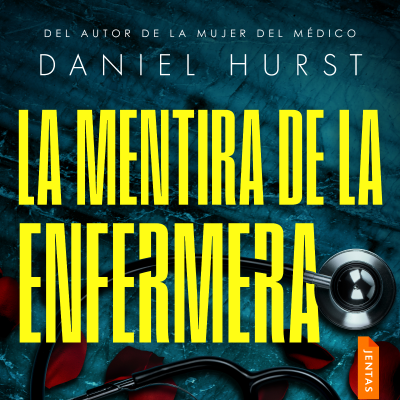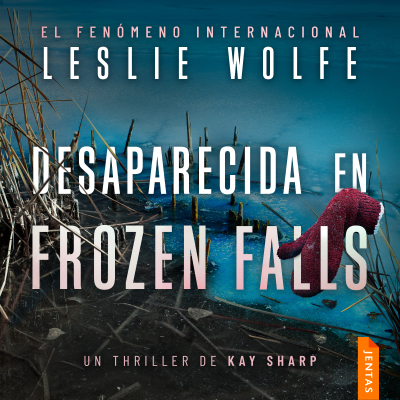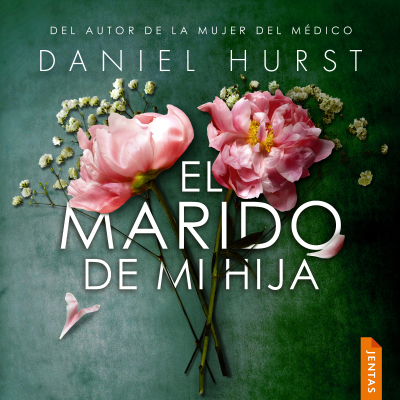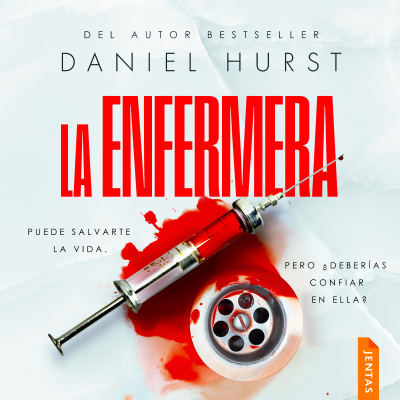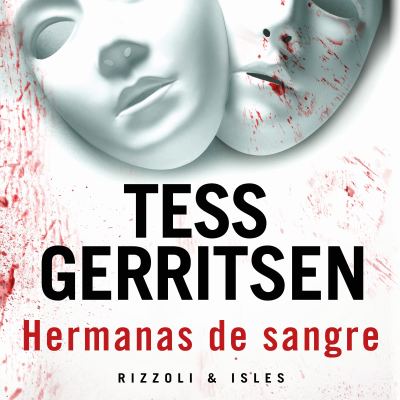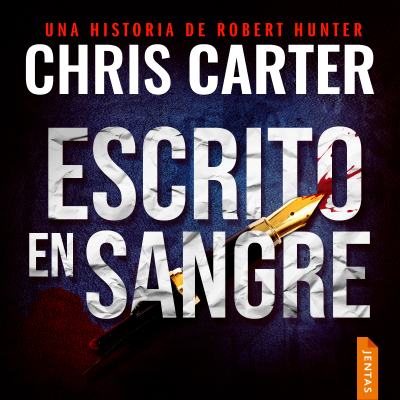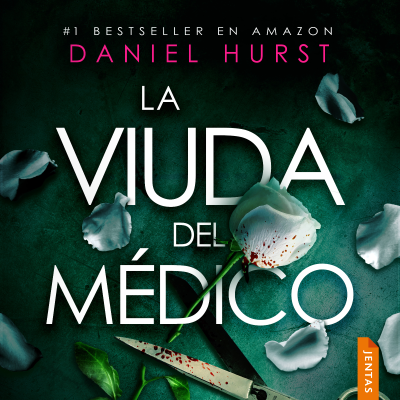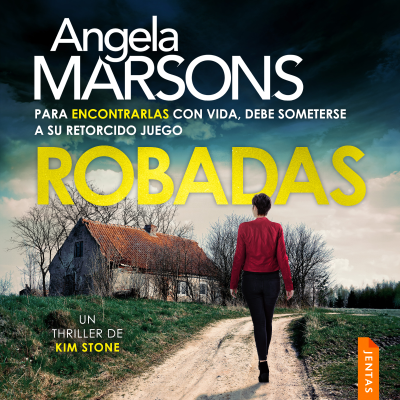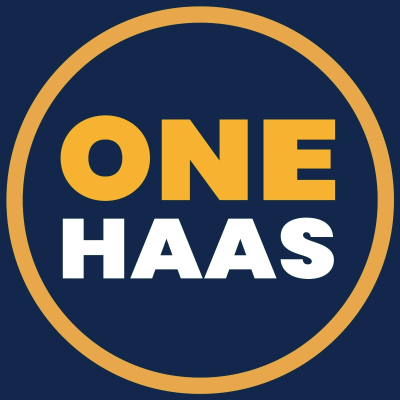
OneHaas
inglés
Negocios
Oferta limitada
2 meses por 1 €
Después 4,99 € / mesCancela cuando quieras.
- 20 horas de audiolibros / mes
- Podcasts solo en Podimo
- Podcast gratuitos
Acerca de OneHaas
We are ONE Haas, an alumni-run podcast for the Berkeley Haas Community. With 40,000+ Alumni and 1400+ Haas MBA students on campus every year, there is more to this network than meets the eye. We hope to bridge that gap ever so slightly and introduce you to people you never knew you had in your Haas network. Thank you for tuning in to this Berkeley Haas Podcast!*OneHaas Alumni Podcast is a production of Haas School of Business and is produced by University FM.*
Todos los episodios
199 episodiosDean Jennifer Chatman, PhD 88 – Leading the Haas School of Business Into a Bright Future
On this special episode of OneHaas, Dr. Jennifer Chatman, Dean of the Haas School of Business, shares her career journey and her hopes for the future of Haas. Dean Chatman is not just a double bear, with an undergraduate degree and PhD from Haas, but has called UC Berkeley’s campus home for most of her life. In this interview, she chats with host Sean Li about growing up in an academic family, how her father, a Berkeley professor, inspired her to pursue a life of learning, how following her curiosity led to a pioneering career studying organizational culture, the enduring relevance of Haas' defining leadership principles, and why she thinks the future of Haas is very bright indeed. *OneHaas Alumni Podcast is a production of Haas School of Business and is produced by University FM.* EPISODE QUOTES: On passing the baton from one Berkeley professor to another “ So I remember being out here just before I was about to start and my dad was just about to retire. We had lunch somewhere on campus and we were sitting on the steps of Harmon gym… and a student walks by and looks up and says, ‘Hi, Professor Chatman.’ And my dad looks at this student and he looks again. He said, ‘I don't recognize that student.’ I said, ‘Yeah, Dad, that's one of mine.’ So that was the official passing of the baton.” On finding a passion early on for social psychology “ I've always been fascinated by social interaction. And I remember in high school…I always loved to type up surveys and then I would go give them to people. I’d give them to my parents, I’d give them to my sisters. I’d give it to my friends, like, what did you have for breakfast? And, you know, A, B, C, or D. Right? And, I just found that sort of calculating of what people were doing and what were the similarities across people and what were the ways in which they diverged. I found both of those things very, very interesting.” On the importance of trusting and leaning into your curiosity “ I think the advice is trust your curiosity and trust what gets you excited and passionate and figure out a way to lean into it, and develop a pathway that involves the things that kind of get you up in the morning. You know, career paths are very, very long and you wanna be doing something that's interesting to you. That gives you energy and it's actually something I really admire and love about our Haas students. There is not one Haas student that I've ever run into who is anything less than completely fascinating. Every single one of our students is interesting. They have a unique and distinctive story. They have really wide ranging interests. I find it just a profound distinction that we're privileged to have this community of super interesting, passionate students.” On her hopes for the future of Haas “ I just think that this is a really incredible moment for our school and we're so full of ideas and our students are so capable and eager and brilliant. They are defining the future and I think that our humanity as well as our skills in leveraging technology, but it's our humanity that's going to allow us to flourish into the future. And I'm just really excited about that.” SHOW LINKS: * LinkedIn Profile [https://www.linkedin.com/in/jennifer-chatman-8086a918/] * Haas Profile [https://haas.berkeley.edu/faculty/chatman-jennifer/] * Professional Website [https://www.jenniferachatman.com/] Support this podcast at — https://redcircle.com/onehaas/donations [https://redcircle.com/onehaas/donations]
Cory Boatwright, MBA 21 – Finding Jobs That Matter For Our Vets
In honor of Veterans Month, the OneHaas Alumni Podcast is pleased to welcome Cory Boatwright to the show. Cory is a Senior Advisor of Workforce Development, Strategies, and Programs for Hiring Our Heroes. Growing up in a working class home in Chico, California, Cory always knew he wanted to go to college, but coming from limited means made that a challenge. So he decided to start his career by first joining the military – a decision that sparked a lifetime passion for service and social impact work. Cory tells host Sean Li how his time in the Air Force prepared him for a successful career in business, what it felt like to fulfill his childhood dream of attending Haas, and how he’s giving back to the veteran community through his work at Hiring Our Heroes. *OneHaas Alumni Podcast is a production of Haas School of Business and is produced by University FM.* EPISODE QUOTES: On how the Air Force prepared him for a career in business “ I always knew that I wanted to be like a business person, right? And I kind of just made up this person, this fictitious person of who I wanted to be. And I took characteristics of people from books, magazines, shows, and stuff like that, of who I wanted to be as a business person. And so one of the things that I thought was like, okay, well, a business person has to be able to be a public speaker and speak in front of people…And so I was like, well, how do I do that? I don't have the skills to do that. So I joined the Air Force as a military broadcaster. I was like, I'm just gonna throw myself into this.” On his switch from the investment banking world to military programming “ There's a role that came open at LinkedIn to build out their military recruiting programs. I had zero experience as a recruiter. I wasn't a recruiter, but I was like, I'd really like to work with the military community. And so I talked to a friend of mine who owned a nonprofit… And he’s like, Cory, what do you do for free? And I was like, I help vets get jobs and get into school. And he’s like, you should figure out how to get paid to do that.” On fulfilling his longtime dream of attending Haas “...Immediately I was with my people and I was like, no doubt I'm coming here. Just a huge sense of belonging. I went there and basically I was able to, between like the core courses, which every one of them really resonated with me, I loved the curriculum of the program, but also when it came to electives, I was able to build out a learning path for myself that was more geared towards buying a business than it was doing a startup.” On the work he’s doing at Hiring Our Heroes “ They come into our ecosystem and we're making sure that we're getting them to the places that they need to be. For instance, if somebody has a housing issue, they don't have housing or they're about to lose their housing, or they can't pay their utility bills, like that person's gonna be really difficult to help get a job because their basic needs aren't being met at that moment. And so we make sure that they're gonna get to the right people to be able to help them fix that issue and then come back into our orbit so that we can help them connect to meaningful employment. Not just jobs, but like jobs that matter, jobs that are gonna be sustainable, jobs that are gonna have good wages and benefits and stuff like that.” SHOW LINKS: * LinkedIn profile [https://www.linkedin.com/in/coryboatwright/] * Hiring Our Heroes website [https://www.hiringourheroes.org/] * Cory’s book recommendation: HBR Guide to Buying a Small Business: Think Big, Buy Small, Own Your Own Company [https://www.amazon.com/HBR-Guide-Buying-Small-Business/dp/1633692507] Support this podcast at — https://redcircle.com/onehaas/donations [https://redcircle.com/onehaas/donations]
Bryce Gilleland, MBA 20 – Coaching Founders & Creating Social Impact
On this episode of the OneHaas Alumni Podcast, meet Bryce Gilleland, a general partner at the Cal Innovation Fund, who is helping tomorrow’s most-innovative founders change the world. Bryce, a Californian through-and-through, grew up in Irvine before moving to San Francisco to begin his career at Pacific Gas and Electric. After many successful years in the energy sector, he hit a ceiling and saw the MBA program at Haas as a pathway forward. But what began as a practical step in his career turned into so much more. Bryce joins host Sean Li to discuss his journey from PG&E to venture capital and how coaching others and a personal growth mindset is at the core of everything Bryce does. *OneHaas Alumni Podcast is a production of Haas School of Business and is produced by University FM.* EPISODE QUOTES: On what led him to Haas and his drive to get an MBA “The beautiful part of the whole thing was like after going to Haas, it really opened up my eyes. You know, I saw a bunch of other students with a bunch of other jobs. I saw a bunch of people starting their own businesses and it really expands your mind going there and just talking to your fellow students and hearing some really inspirational professors and, you know, the chancellor now, Chancellor Lyons, he was the dean of Haas right when I joined, and he was super inspirational. So even at the welcome dinner, he was like, I want my students to learn all this stuff, but I really want them to learn: ‘They do that, we do that.’ And that line stuck with me so much where it's like, oh, okay, yeah, I don't have to just simply revere or wonder why other people did it. I could actually go leap in and try to do it myself.” On his decision to take a semester off and travel the world “ There was like a need to go do it and find more of myself, like shed the layers. So it was really, really cool that – you know, I'm forever thankful for Berkeley for many things. But one of them was that they were like, yeah, we have a method for this. We'll make it work. And they gave me that chance to do that.” How he ended up with the Cal Innovation Fund “ When this presented itself, I just dove in and was like, okay, I gotta have some ability to coach and impact leaders because that's what I feel like is kind of in my soul, almost, or my spirit is aligned towards that. And then I wanna be able to make an impact in the world. And, you know, the Cal fund aligns with that. Totally.” What opportunities the Cal Innovation Fund looks for “We try to invest in startups that are gonna make a greener, healthier, more sustainable world. So it's kind of a value-based fund. And then the fund donates 50% of the GP profits (so the company profits, not the investors’) back to the school. And so it just feels very aligned in that we're trying to support the Berkeley ecosystem, really all the UCs, but most founders are outta Berkeley, and trying to make the world a better place in the process. And then trying to give back to that system and create the flywheel of innovation for that.” SHOW LINKS: * LinkedIn Profile [https://www.linkedin.com/in/bryce-gilleland-574b74a/] Support this podcast at — https://redcircle.com/onehaas/donations [https://redcircle.com/onehaas/donations]
Richard Velazquez, MBA 03 — Relentless Personal Growth
For Hispanic Heritage Month, the OneHaas Alumni Podcast is honored to share the story of Richard Velazquez, a mission-driven executive who is using his decades of experience in a variety of industries to help other Latinx MBA students and alumni succeed. Every time Richard felt like he hit a ceiling at a job, he pivoted and found new ways to keep moving up. Hailing from Brooklyn, New York, Richard learned the value of education and hard work from an early age. It was this drive that got him accepted into one of the most competitive engineering colleges in the U.S. and launched his career into the automotive industry. Richard’s relentless pursuit for personal growth led him to hold senior leadership positions at Microsoft, Pepsico, and Amazon. But through all those jobs, a constant for him has been his desire to give back and uplift other Hispanic business professionals in their careers. Richard chats with host Sean Li about his career journey from designing cars at Honda and Porsche, to being one of the key masterminds behind Xbox Kinect, his pivotal role at Pepsico, and his new position as CEO of the Latinx MBA Association. *OneHaas Alumni Podcast is a production of Haas School of Business and is produced by University FM.* EPISODE QUOTES: On his journey to Haas and getting his MBA “When I had the opportunity to move to Germany to work for Porsche, I put my MBA plans on hold and I was like, you know, I'd rather go to Germany and live in Europe for a few years before I take that route. So it was great. I really loved living in Europe. That's where my love for traveling started. I've been to 105 countries since then, but it all started living in Germany…So after two years at Porsche in Germany, I applied through the Consortium for Graduate Study Management, they give full fellowships. At the time it was for underrepresented minorities who were looking to get their MBA and was open to anyone who has a commitment to diversity. And I applied, I got into Haas.” On Xbox Kinect’s success and Richard and his team’s involvement “People just really got into it... So the thing with Kinect was since it was doing skeletal tracking, if you just flick your wrist, the character on the screen would just flick their wrist. There was no like faking it. So Dance Central was phenomenal. It showed you which arm was wrong. It highlighted in red when you were doing something wrong and it was game changing at the time. So it set a Guinness World Record, it was the fastest selling consumer electronics device, it was like 10 million 10 million units in less than like two and a half months or something like that. So it was a big deal.” On his decision to leave Microsoft for the beverage industry and a top role at Pepsico “ It was similar to like the car design and like, it's gonna be slightly different [but] it's all gonna do the same thing. So it wasn't advantageous for me to do it 'cause I wasn't linear or growing in any way, shape or form. I'm still an individual contributor. I'm not leading any teams. I want to get promoted, I want to advance.” On why he wanted to pursue a full time role in helping other Hispanic business professionals grow “ After 30 years, I was like, well, I'm getting more personal fulfillment from these scholarships that I'm getting for students who are like me who didn't have those opportunities to get into school, for helping people get their first jobs, for helping them invest in their careers, than I am by making an extra billion dollars or a hundred million dollars for Amazon or these other companies that don't really need it…It's not giving me the personal satisfaction that I'm getting from this work I'm doing with people.” SHOW LINKS: * LinkedIn Profile [https://www.linkedin.com/in/richardvelazquez/] * Latinx MBA Association Website [https://www.latinxmba.org/] Support this podcast at — https://redcircle.com/onehaas/donations [https://redcircle.com/onehaas/donations]
Joshua Ahazie, BS 18 – Putting African Music on The World Stage
This month, the OneHaas Alumni Podcast is excited to share the story of Joshua Ahazie, founder and CEO of ATIDE and marketing lead at Warner Music Africa. Joshua grew up in Lagos, Nigeria in a household brimming with music and entrepreneurial spirit. After following one of his brothers to California and attending Berkeley City College, he set his sights on the Haas School of Business. Through his Haas education, Joshua found a way to combine his love for music with his desire to make the world a better place. Joshua joins host Sean Li to chat about the inception of the ATIDE Project and the community impact it’s had in Lagos. They also discuss the growth and global success of Afrobeats, his work with Warner Music Africa, and his vision for Nigeria's music industry. *OneHaas Alumni Podcast is a production of Haas School of Business and is produced by University FM.* EPISODE QUOTES: On what drew him to Berekley Haas “It was this campus and school that had values or principles that were very clear in their culture and they sort of embodied that into the learning process as well. So I was drawn to the principles because that was pretty new for me, and I just ended up spending the next couple of months learning more and more. I was stopping people that were wearing Berkeley Haas merch like, ‘how do I get into this castle atop the hill?’” On the origins of ATIDE “ So it started off as a philanthropic project, right? Our focus was sort of giving back with commerce. The name by the way, it's Yoruba and it means, ‘We are here.’ In the early days, we had launched this curated online store in partnership with a couple Nigerian entrepreneurs who were passionate about social causes. And during my time at Haas, I was very inspired by brands like Tom's. Like, you know, the idea that commerce could fund impact in a very sustainable way because as opposed to donations, you are actually building a customer, building an audience and that can scale. So our goal was simply to sort of help these local businesses reach the global audience while also funding meaningful social change.” On the important role music plays in his work “ That's the language I speak, man. Like, I play instruments, I collect records, I love seeing artists perform. It's such a vulnerable and expressive form of art. And even though we've worked across different industries – hospitality, nonprofit, e-commerce, gaming, whatever it may be – my most exciting projects, personally, are our music campaigns and our artists like rollouts.” On the booming music scene in West Africa “ A couple of things that could have helped with the growth that we're seeing now is just the confidence that we have in our identity. I think in the early 2000s, we were sort of focused on fusion. How do we put in R&B with our sound and how do we put in this record with that one? But now, being African is cool and our artists are leaning into their identity of what it means to be African and make music as an African. I think that confidence in our Africanness has been something that has allowed us to sort of stand out in a very saturated music market globally.” SHOW LINKS: * LinkedIn Profile [https://www.linkedin.com/in/joshuaahazie/?originalSubdomain=ng] * ATIDE Project [https://www.atideproject.com/] * The Cavemen. [https://www.instagram.com/the.cavemen/?hl=en] * JOEBOY [https://www.instagram.com/joeboyofficial/] * Joyce Olong [https://www.instagram.com/joyceolong/?hl=en] Support this podcast at — https://redcircle.com/onehaas/donations [https://redcircle.com/onehaas/donations]
Elige tu suscripción
Oferta limitada
Premium
20 horas de audiolibros
Podcasts solo en Podimo
Podcast gratuitos
Cancela cuando quieras
2 meses por 1 €
Después 4,99 € / mes
Premium Plus
100 horas de audiolibros
Podcasts solo en Podimo
Podcast gratuitos
Cancela cuando quieras
Disfruta 30 días gratis
Después 9,99 € / mes
2 meses por 1 €. Después 4,99 € / mes. Cancela cuando quieras.

